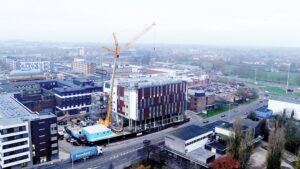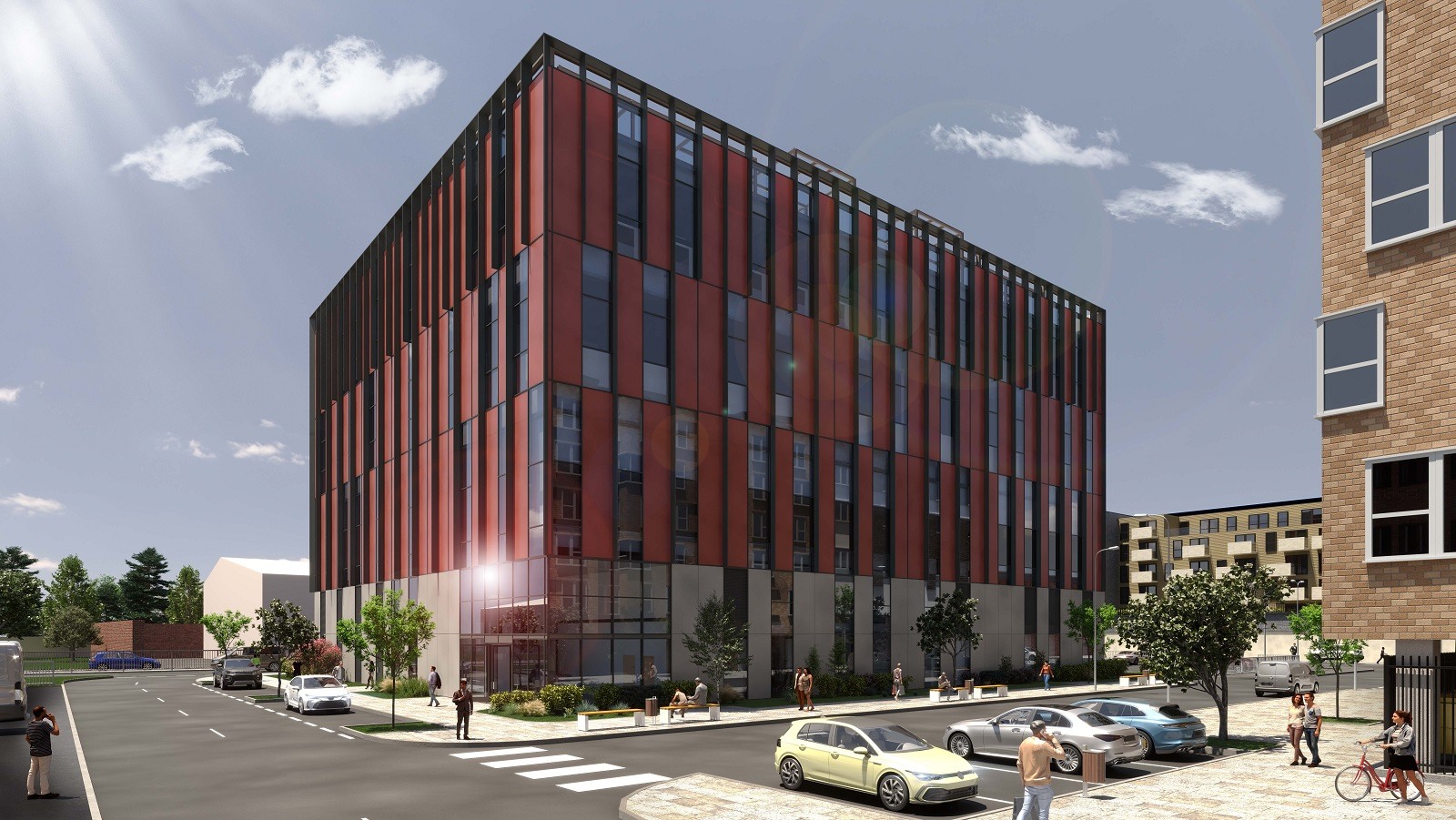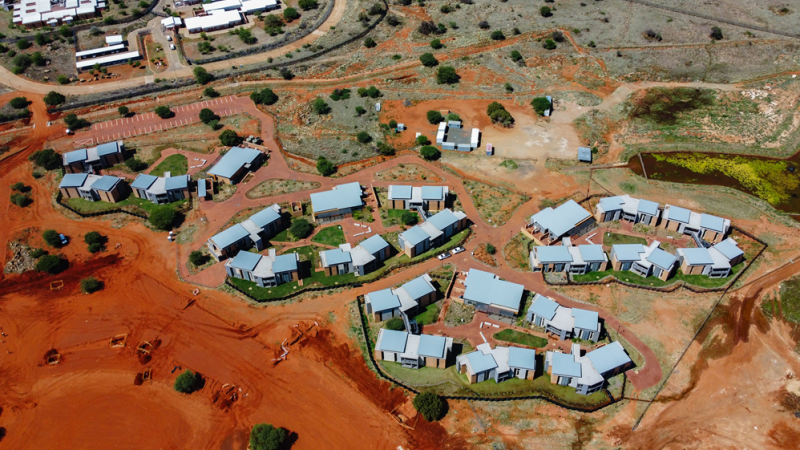We spoke to Merit last year and came back to see what has been achieved in the post-pandemic months, and what is in the pipeline for the coming years. CEO Tony Wells affirms that the business stands stronger than before.
“With a progressive acceptance of a product-based approach to construction, we have grown quite dramatically,” he said. “People are beginning to understand how integrated platform technology can be deployed in the sector, and how that can then transition into industrialised construction.”
 He stated that Merit’s sales increased by 50% between 2021 and 2022. A 100% year-on-year growth is expected for 2023, with at least the same rate envisaged for 2024. The reason for this phenomenal growth is Merit’s unique platform design combined with offsite project delivery to provide a step-change improvement in terms of quality while significantly reducing completion time.
He stated that Merit’s sales increased by 50% between 2021 and 2022. A 100% year-on-year growth is expected for 2023, with at least the same rate envisaged for 2024. The reason for this phenomenal growth is Merit’s unique platform design combined with offsite project delivery to provide a step-change improvement in terms of quality while significantly reducing completion time.
“Basically, we are producing a new business model to deliver high-tech facilities,” said Tony Wells. ‘Specifically, the biotech industry – one of our key segments – requires a fast-track project delivered at a reasonable price. We have designed and developed products that can deliver complex facilities, built on time and on budget, which is something apparently only 2% of construction projects generally achieve.”
Record-time delivery, outstanding performance
It is not only time and efficiency that differentiates Merit from others. The company believes that through the intelligent use of new technologies, renewables, heat pumps and heat recovery systems, it is entirely possible and economically viable to produce zero carbon emission, high-tech industrial facilities.
Last year, Merit demonstrated its capability in several ground-breaking projects. The company completed the UK’s first CAR-T Cell Therapy Manufacturing Facility for Autolus Therapeutics, utilising its FLEXI POD®, a hybrid solution comprising aspects of modern methods of construction for the shell and core, and an offsite manufactured fit out which is facilitated through a Pre-Assembled Module (PAM) and POD strategy.
The process areas were handed over and validated 17 months after contract award including planning and only 12 months after site access, compared to the industry standard of 4 to 5 years. “The environmental status is reflected in the facility rating – it achieved BREEAM Excellent and is EPC-A rated, which, for a biotech facility, is almost unheard of,” noted Tony Wells.
This success was followed by a £30m project for Piramal’s Antibody Drug Conjugate, another important manufacturing facility expansion project within the life sciences sector. Using the FLEXI POD® V4.0 platform, with enhanced technical and energy performance, the facility has been designed and will be built and commissioned in 16 months with completion due in June 2023.
A different sort of talent
Tony Wells explains that Merit’s different approach also requires a different kind of people. “Whereas the construction industry is struggling to attract people due to the difficult nature of the work, we offer a very different set of working conditions. We have reduced the work on site by 83%. This has helped in terms of attracting a different talent pool into the industry.”
Over the last two years, Merit has almost tripled the number of staff, hiring graduates, software specialists, digital technology experts and digital manufacturing. Tony Wells affirmed that so far the company has not suffered from labour shortages.
“When introducing a disruptive technology, it’s actually unhelpful to hire people who are good at doing the standard technology because it’s difficult to get them to change. We are looking for different skill sets with disruptive technology; we do not really hire on experience. We hire proactivity, intelligent people with integrity and enthusiasm. We want happy people.”
Diversity is also a strong topic for Merit, he affirmed, pointing out that the company employs 19 nationalities and 19.9% of the workforce is female in the engineering and office environment. “The demographics are also different. While the most populous age group in the general construction industry is typically 50-54, ours is 25-29, and the average age in the organisation is 37, giving the company a start-up feel.”
Delivering a step change
Outlining Merit’s plans for the future, Tony Wells stated that the company is starting to look at export markets now as well as other sectors, such as healthcare.
The company has also been active in the semiconductor industry and EV battery market, considered a growth target, although right now, it seems that biotech and healthcare projects will provide immediate high growth for Merit.
“We have started to look at markets in the US and Europe but our key focus at the moment remains the UK. We are delivering UK-based solutions. We design and make the product in Northumberland, and we’ve got an almost exclusive UK supply chain. We’re taking numerous graduates from local universities in the Northeast. That is our contribution to help the Northeast economy, which we’re passionate about.”
In addition to continuing to integrate IT and digital manufacturing technology into the business and investing in its R&D programme, Merit is now in the process of increasing its production capacity. Earlier this year, the company announced a 4,000m2 factory expansion at its Cramlington site, to accommodate its plans for continued growth. This is set to be followed by another expansion, and potentially by another factory in the future.
“Merit’s strategic objective is to deliver a step change in productivity within the construction industry and to show that investment in R&D and leveraging innovative approaches, such as advanced 4D BIM modelling technology, can lead to significant improvements. Our factory expansion will enable us to further optimise our way of working and better serve our customers,” concluded Tony Wells.





